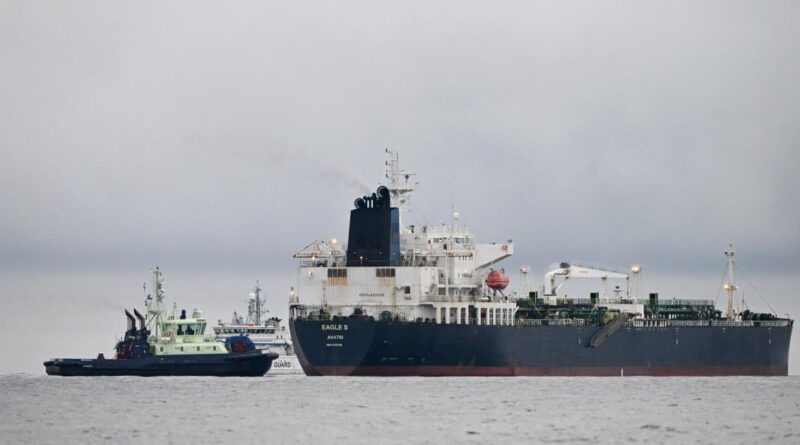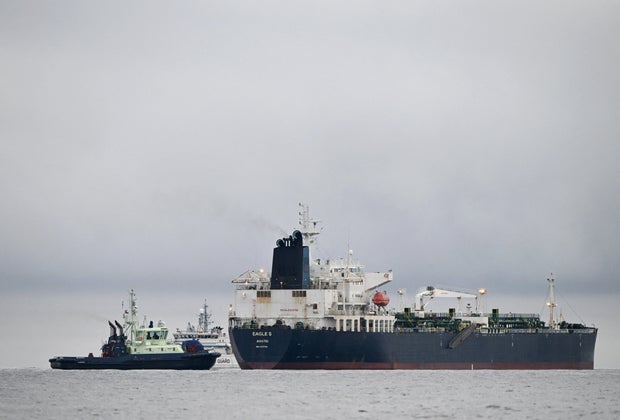Finland police say Russia-linked ship held in severed cables probe may have dragged anchor for 60 miles
Helsinki, Finland — Finnish investigators probing the damage to a Baltic Sea power cable and several data cables said they found an anchor drag mark on the seabed, apparently from a Russia-linked vessel that has already been seized for investigation.
The Estlink-2 power cable, which transmits energy from Finland to Estonia across the Baltic Sea, went down on Dec. 25 after an evident rupture. It had little impact on services but followed earlier damage to two data cables and the Nord Stream gas pipelines, both of which have been termed sabotage.
Finnish police chief investigator, Sami Paila, said late Sunday the trail dragged for “dozens of kilometers… if not almost a hundred kilometers (62 miles).”
Jussi Nukari/Lehtikuva/REUTERS
“Our current understanding is that the drag mark in question is that of the anchor of the Eagle S vessel. We have been able to clarify this matter through underwater research,” Paila told Finnish national TV broadcaster Yle.
“I can say that we have a preliminary understanding of what happened at sea, how the anchor mark was created there,” Paila said, without providing further details. He also stressed that the “question of intent is a completely essential issue to be clarified in the preliminary investigation, and it will be clarified as the investigation progresses.”
On Saturday, the vessel was escorted to inner anchorage in the vicinity of the port of Porvoo, to facilitate the investigation, officials said. It is being probed under criminal charges of aggravated interference with telecommunications, aggravated vandalism and aggravated regulatory offense.
The vessel is flagged in the Cook Islands but was described by Finnish customs officials and the European Union’s executive commission as part of Russia’s shadow fleet of fuel tankers. Those are aging vessels with obscure ownership, acquired to evade Western sanctions on Russia amid the war in Ukraine and operating without Western-regulated insurance.
Russia’s use of the vessels has raised environmental concerns about accidents given their age and uncertain insurance coverage.
In the wake of the cable rupture, NATO Secretary-General Mark Rutte said last week that the military alliance, which Finland joined last year, will step up patrols in the Baltic Sea region, where tension has increased since Russia launched its full-scale invasion of Ukraine in February 2022.
Finland, which shares a 832-mile border with Russia, abandoned its decades-long policy of neutrality and joined NATO in 2023, amid Russia’s war on Ukraine.
About seven months after the Russian invasion began, a series of underwater explosions ruptured the Nord Stream pipelines that were built to carry Russian gas to Europe. The cause has yet to be confirmed, but Germany has sought three Ukrainian nationals for questioning in connection with the suspected sabotage.
In late November 2024, parts of two data cables were severed in Swedish territorial waters. Ship tracking sites show the Chinese freighter Yi Peng 3 had sailed over the cables around the time they were cut.
Russia responded to early speculation by European officials that the cables could have been damaged as part of hybird warfare efforts by Moscow with derision. Kremlin spokesman Dmitry Peskov said at the time that it was “quite absurd to continue to blame Russia for everything without any grounds.”


